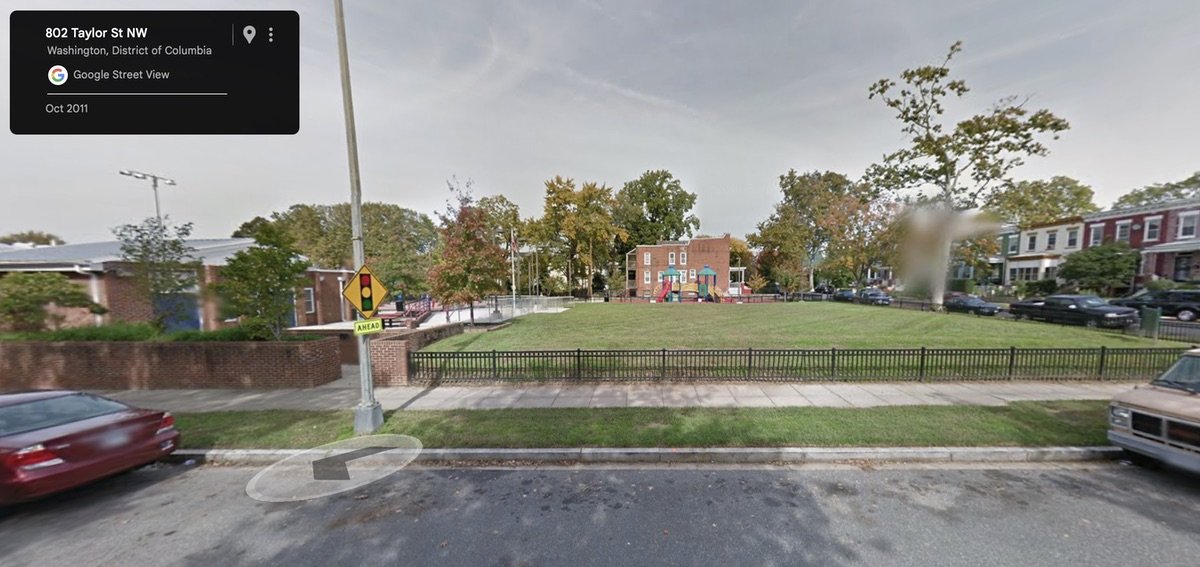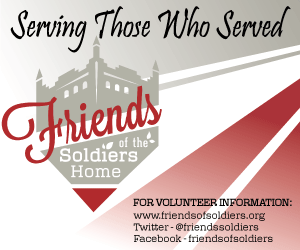Local restaurants find ways to be creative in making revenue and supporting the community
/Customers lined up — 6 feet apart — to pick up orders from Lulabelle’s Sweet Shop on Upshur Street NW.
With the stay-at-home order, restaurants and businesses have had to either close or find creative ways to keep revenue coming in so they can pay staff, pay rent and other bills. While some restaurants have closed, others are offering different curbside pickup and delivery options, while some businesses have transitioned to online sales and classes.
This is a two-part series looking at the ways local businesses and restaurants are working to stay financially afloat while also supporting community needs. Part two looks at businesses.
Beyond finding ways to make money for themselves, some local restaurants have also taken on the effort of feeding others impacted by the Covid crisis. It's not an easy transition, but it's one many are committed to — figuring out how to help their neighbors and industry employees.
Nic Makris, owner of Homestead on Georgia Avenue and the The Blaguard on 18th Street NW, came up with an idea for donating meals to help those in need after partnering with Feed the Fight DC to get meals to nurses.
"I decided to launch the Feed 1 for Ward 4 initiative after delivering to George Washington Hospital," Makris said. "We were able to box up 200 meals and deliver to a single location. It felt great to give back. So I came up with a basic plan to distribute thousands of meals to District residents through channels that were unknown and paid for with money we don't have," Makris said.
photo: Homestead Facebook
It was a great idea; next step was figuring out implementation and funding. He decided to turn to customers to help.
"I was pondering how I can ramp up my capacity and decided that adding a button on Homestead's online menu would allow anyone that wants to contribute to do so. Kitchen is staffed, the window is open for business. We are ready to go and have the capacity in our current state to produce a minimum of 50 meals a day. All we need is capital to ramp up our distribution."
Makris’ hope is that customers will donate $10 toward providing an additional meal for someone in need. And customers have begun to donate. He started out his first delivery by working with Ward 4 Councilmember Brandon Todd on distributing the meals to local residents lacking food security.
"My office receives calls from seniors and families who are experiencing food insecurity during this time of COVID-19,” said Todd. “Over the last three weeks my staff and I, as well as volunteers, have been delivering meals to Ward 4 residents who need them. This partnership with Homestead will allow us to expand the opportunity to provide more meals to more families."
Residents can contact the Councilmember's office if they're in need at 202-724-8052.
Cinder BBQ on Upshur Street began offering pick-up and delivery in early March, hoping to generate enough business to make it through the first couple of weeks before they had to make tough decisions on payroll. The restaurant pared down the menu, supplementing with one to two special menu items each week, to keep customers engaged.
Meals packaged by Cinder, ready for donation. (photo courtesy of Cinder BBQ)
Now about a month in, they still have everyone on payroll, said Matt Krimm, one of the owners. "We haven’t laid anyone off, so it’s a 'success.' DC allowing spirit sales to-go has been extremely helpful as well, people can grab a beer or some cool whiskey to take home and enjoy with their food. We’re taking it week to week, but anticipate it getting tougher in the coming weeks, given the likely higher numbers of infections and deaths in the area and country."
Cinder began donating meals to hospitality industry employees who were laid off shortly before the stay-at-home order went into effect. "We are doing donations of food to Hook Hall, and will be delivering to the VA hospital this week as well," said Krimm. "We are looking to help as much as we can without interfering with regular business. We are trying to keep sales coming in, so we can keep people employed. Business comes first, and we fill in the spare time with charitable activities."
Krimm said Cinder has been doing two deliveries a week of 100-150 meals, funding the effort through their own pocket, donations from customers, and funds from W. Curtis Draper, their cigar shop located downtown. "That’s about what we can handle at the moment, without stressing out the staff and facility."
"The neighborhood support has been unbelievable, and we are so grateful for it," Krimm said.
Julie Wineinger, owner of Lulabelle's Sweet Shop and Willow on Upshur Street, has also taken some creative steps to keep business going with weekly ice cream and grocery sales. Customers can pre-order items on Lulabelle's website for curbside pick-up once a week. The effort brings in revenue, meaning employees can get paid and suppliers get paid. It's not nearly what she was bringing in before, but it's a start, and it helps the community as well.
Lulabelle’s owner Julie Wineinger hands a customer their order over two tables, with gloves and a mask on.
"While it's helping me to pay vendors and other bills, I know that the community is very appreciative of being able to get ice cream and groceries. If it helps people extend having to go the grocery to every two-to-three weeks versus every week, then I am happy to do it," Wineinger said.
She started taking orders for grocery items after noticing people on the neighborhood groups and listservs complaining of having a hard time finding basic food items like butter, milk, eggs and flour.
"All of these items are fairly easy for me to get through restaurant suppliers and only require a single delivery to the store, so fairly low-risk," she said. "It also helps my employees, which is really why I first started the ice cream sales. I had a bunch of ice cream that I didn't want to go stale so a couple of staff members and I packed it all in pints and gave all the tips from the sales to employees as a fundraiser. Lastly, many of my suppliers are small businesses themselves and it helps to keep them in business, too."
Chef Alfredo Solis says takeout from El Sol and Mezcalero is helping to cover some costs, but it's been hard. “I’m worried about everyone. My family, my employees. But in the meantime, bills haven’t stopped," Solis said. "Safety is my top priority but it’s been hard. My employees that are working I’m paying them an hourly wage and giving employees I had to lay off free meals. I think I will be able to hire at least a few of them back soon.”
Mezcalero meal, packaged for pickup. (photo courtesy Chef Solis)
Solis said they are considering opening Anafre with a limited take-out menu soon, and are looking to do more meals for the community in the next couple of weeks.
Likewise, Capitol Cider House is treading financial waters and is staying afloat, for now. "It's an immense challenge,” said owner Jared Fackrell. "The current slate of federal and local initiatives aimed at supporting small businesses through cash flow infusions will definitely help once the respective offices approve applications and disburse proceeds."
In normal times, the Cider House has served as a gathering spot for the neighborhood to socialize over food and drink, celebrate work and life milestones, fundraise for local charities, and more. Without that component, Fackrell said they had to be creative in finding new ways to connect with the community.
Delivery of cider from Capitol Cider House (photo courtesy Jared Fackrell)
"We're diligently working to replicate as many of those experiences as possible in the current environment we operate in. For instance, we've repackaged a lot of our programming like our trivia nights and comedy shows for virtual audiences to help people stay socially connected in our newly — and hopefully temporarily — physically distanced world.”
Capitol Cider House is offering delivery and pickup through an online store. "We are incredibly grateful for the huge community response received so far and will continue to offer these services as long as city officials deem it safe to do so."
Fackrell said they are looking at ways to more directly help the community. "We're actively exploring a number of options, focusing on first responders. Always open to ideas, too, if any of your readers have a suggestion please feel free to send it our way!”
With the changes to the economy and local shopping, the future is unclear for businesses and restaurants. All they can do is try to keep customers coming back for pickup or online sales, and do their best to figure out the various grants and loans from the city and the federal government. In some cases, those funds may not be enough to save some.
“It is all very overwhelming because of the uncertainty surrounding how long this will last,” said Julie Wineinger. “There is a real possibility that I will have to change my business model entirely and/or close. Navigating the SBA loans and grants has been almost a full-time job and leaves one feeling a little downtrodden as the process is not easy. And now the added layer of dealing with banking institutions has brought about a whole new set of rules and requirements that are entirely at the whim of the bank.”
“My goal at the moment is to just keep my business as financially sound as I can so that if/when I can reopen at a greater capacity, I will have the resources to do it,” she said. “The government resources available so far focus on getting money to keep paying your existing rent, payroll and bills (which is very important), but that alone will not keep me in business, especially, if I have to go into debt to do that. I will need capital to be able to actually reopen the store.”
Each business says the same thing: it’s the support of the community that matters most.
“As long as the neighborhood can continue to support the ice cream and grocery sales it at least keeps some revenue coming in that can hopefully help me to have the resources to be able to do something more in the future,” Winenger said.











![DC residents with qualifying medical conditions can sign up for vaccine appointments starting Friday, February 26th [updated]](https://images.squarespace-cdn.com/content/v1/5522ceeae4b0593541222134/1614217983041-9EOT7DN59CPLNRNKOZZ7/Now-Vaccinating2-24-2021.jpeg)

















